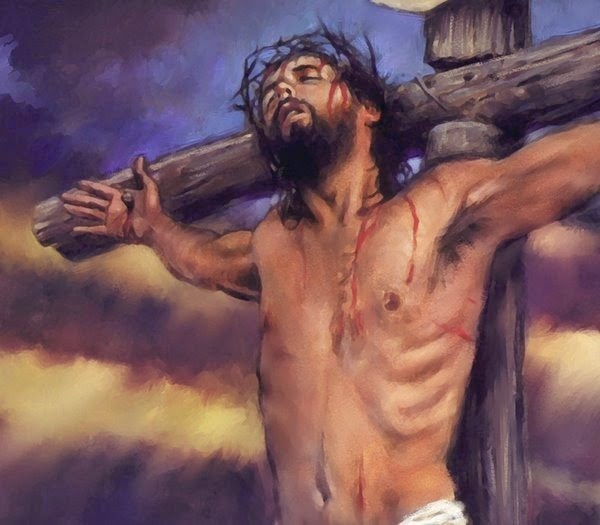Read Matthew 27:45-66.
Last week, I read the following post on the Facebook page of a pastor whom I consider to be a friend, not just a "Facebook friend:"
So excited that there is a stirring at ___ Church for the Bible right now. Not for some systematic, denominational way of thinking, but for a fresh outpouring of the truths of God into the lives of those reading it, then being expressed into their lives...the Bible is alive! (emph. mine)These words really stung me - even if (and maybe especially since) they were not exactly directed at me, a fellow traveler and colleague committed to ecumenism but nevertheless pretty enmeshed in a particular denomination. I have a good relationship with the writer and I think he respects me personally. I also don't think he'd ever say anything like this to me personally. But he was clearly addressing people in that post who share his bias against "denominational" Christianity. I just happened to "overhear it."
Or something like that.
We don't build up the body of Christ by tearing others down, but by raising each other up into the full status of Christ. The late, great Krister Stendahl once spoke about a way to deepen ecumenical relationships - with what he called "holy envy." It is the opposite of finding what it is you don't like about someone else's faith, and instead naming what it is you admire and honor in their way of claiming and living their faith. What strength/gift do they possess that you wish you had? It's not always easy, but it is something I aspire to.
I share these thoughts here (on this our second-to-last day of our journey) not to defend denominationalism nor to criticize my friend's post, but because we have come once more to the cross. And whether or not we want to admit it to ourselves, whether our own theology of the cross is denominational or otherwise, there is no escaping the notion that none of us come to the cross without some preconceived notions. Did Jesus die for my sins? For the sins of the whole world? Did he die as a non-violent response to the corrupt and unjust powers of this world? Did he "trick" the devil? Or is the whole theology of the cross the end result of a hopelessly sadistic patriarchy in which "the father" demands the innocent blood of the son to atone for the sins of others?
Matthew does not care much about our various theologies of the atonement or our personal pieties - systematic, denominational, or otherwise. He tells us what happened, as it had been told to him.
And yet he, too, tells it "from a slant." Because there is no other way. None of us has an "objective" or innocent view of the cross. All of us witnesses see it from a particular angle: from a time and place shaped not just by what happened on that "hill far away" but on what has happened to us in our own journeys. What I mean is that you literally see it differently if you are the Roman centurion or one of those women watching from a distance - or if you see it from the perspective of Matthew, or Luke, or Mark, or John. Always we enter this Passion of Christ from a perspective. None of us is objective as we gather at the foot of the cross. Our particular stories intersect with this Story and it matters what it is we need to be saved from (or to) in terms of what we are able to see and not see. Eventually this journey (not just with Matthew, but in Christ) leads us all to the foot of the cross, where all of our righteousness is as filthy rags - and all of our biases and certitudes are challenged.
So may it lead us all - the systematic and the chaotic, those proud to be part of denominations and those who shun "middle names" - to a fresh outpouring of God's truth. Not only on our lips, but in our lives!

No comments:
Post a Comment